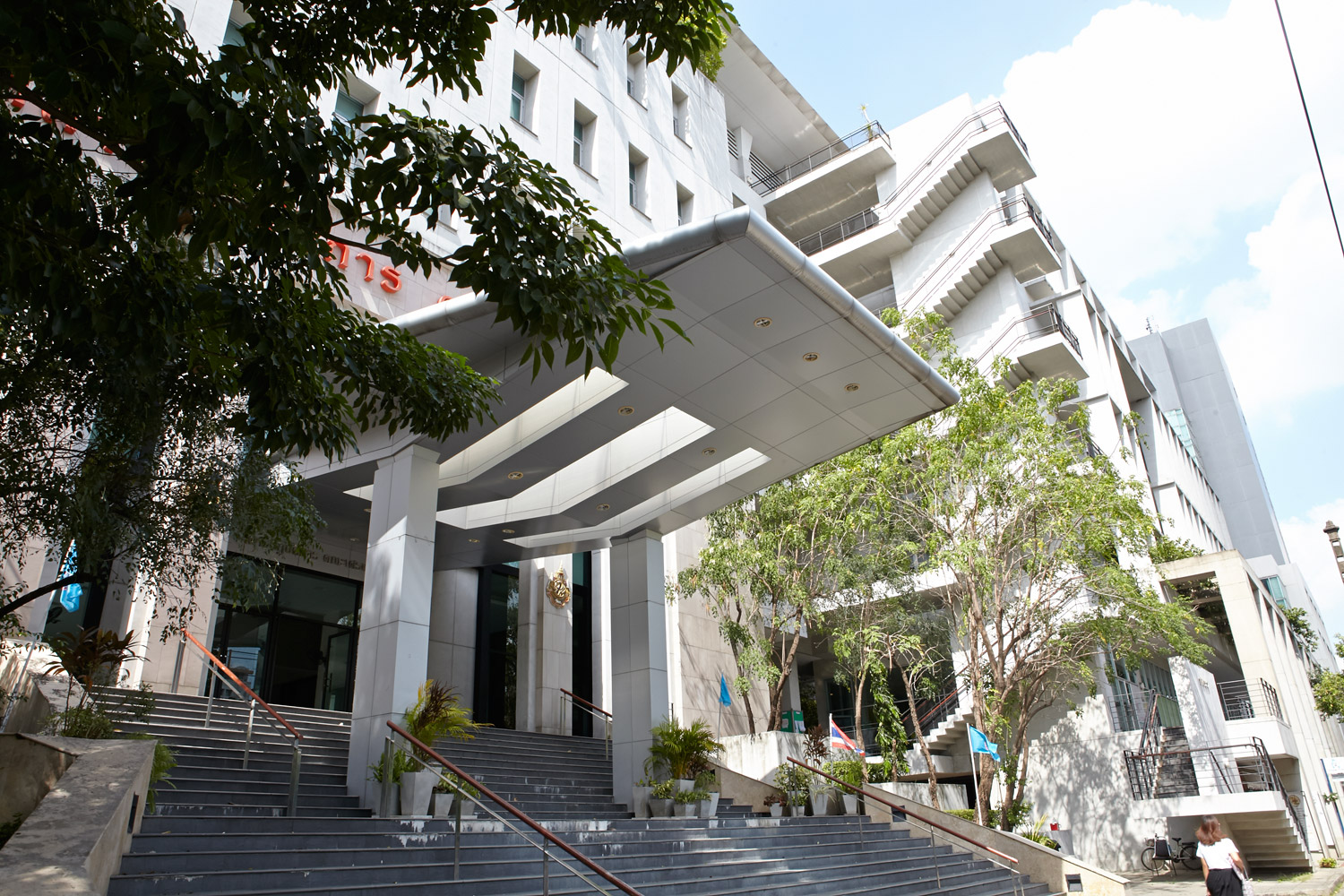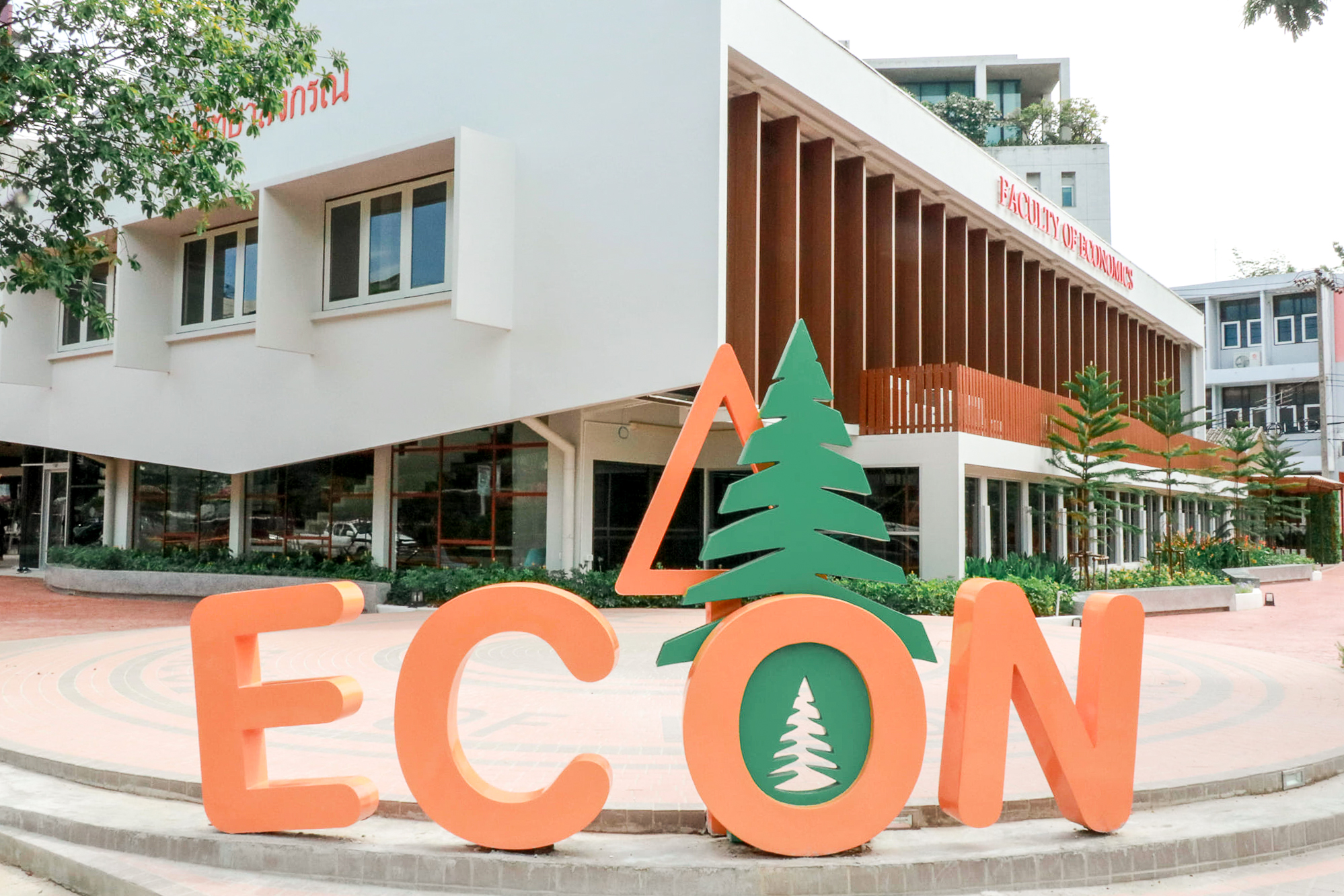Exchange students are those who come/go to study at a partner university under an existing MOU or network. Exchange students are exempted from paying tuition fees at the host university, but must maintain their student status and pay their regular fees at their home university.
Although the majority of the student body is from Thailand, in a typical year approximately 50 to 60 foreign exchange or visiting students (about 10 to 15% of the enrollment) attend classes for one or two semesters. Generally, the visiting students represent more than 12 foreign countries; the majority come from Western Europe and Japan.
A majority of the students enrolled in the Master’s and Ph.D. English-language graduate degree programs offered by the Faculty of Economics are from abroad, and complete their degree requirements in English.
The Faculty of Economics Center for International Affairs (ECIA) provides services to all incoming exchange students who wish to study at the Faculty of Economics, Kasetsart University as non-degree students. If you are from one of our partner universities, please contact the International Office or the exchange coordinators at your home university for the proper nomination process.
Visitors may start classes in August (Fall) or January (Spring). Applications are due approximately three months prior to the start of the period of study. We warmly welcome and highly value the contributions of our foreign visiting students.
- The KU Bangkhen Campus and the Faculty of Economics
- Orientation and “Buddy Program”
- Application Process
- Other Useful Information
- ECIA FACTSHEET (updated 2023)
The KU Bangkhen Campus and the Faculty of Economics
Directions to KU and facilities on campus
KU sky view and Google street view
ORIENTATION and “BUDDY PROGRAM”
Orientation for exchange students normally occurs in the week prior to the first day of classes and will be organized by Kasetsart University International College (KUIC). You may visit the KUIC website here.
As host faculty, ECIA also offers a separate “Buddy Program” to pair ECON Thai students with visiting students. We offer a thorough orientation at the start of each semester, advise students on course selections, and do our utmost to ensure each student is welcomed.
APPLICATION PROCESS
Regarding the process of admissions for incoming exchange students, the International Affairs Division (IAD) of Kasetsart University works with the Faculty of Economics’ Center for International Affairs (ECIA) in handling these concerns.
For more information regarding the application process, click here.
OTHER USEFUL INFORMATION
Visa
Before coming to Thailand, you must obtain a non-immigrant visa category ED from the Royal Thai Embassy or Consulate in your country. Information about immigration matters is available on the website of the Immigration Bureau.
For more information, click here.
Academic calendar
The first semester starts on August to December and the second semester from January to May. Exchange students are allowed to join different classes on the first week of a semester and see which courses may suit their interest and/or would need to register for. An official academic calendar will be regularly published by the Office of Educational Administration here.
Important dates
The important dates of the academic year 2023-2024 is available here.
Credit structure and grading system
Kasetsart University uses a credit structure for the courses which make up a program. Usually one course is equivalent to 3 credits or 3 hours of lecture per class. An allocation of 3-0-6 for a semester-based unit for example means that the course in question requires 3 lecture hours, no tutorial hours and 6 hours of self-study per week. For more information, click here.
Thai Language Course
The EEBA program (international undergraduate program under the Faculty of Economics) opens a Thai Language course for exchange students every semester–free of charge. (Subject to change upon number of interested exchange students to register for the course)
Rules and regulations
All students are expected to abide by the rules and regulations set by the university.
Accommodation
Some on-campus housing accommodations are available, and private residential rentals are readily available near campus (accessible by walking, taxi or bus). The campus is accessible by public transportation and is located near to a variety of retail shopping venues, banks, restaurants, nightlife, fitness, and health care facilities. A list of accommodation nearby the university is available here.
Contact Information
Ms. Wanida Kammani
Foreign Relations Officer and Exchange Program Coordinator
fecowdka@ku.ac.th or wanida.kmn@gmail.com
Office is open Monday to Friday from 8:30 am – 4:30 pm (except on public holidays)



